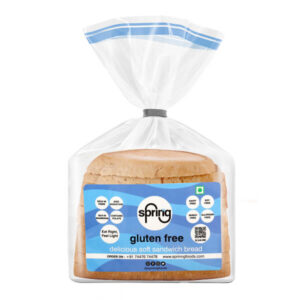
5 SIGNS TO KNOW IF YOU ARE GLUTEN SENSITIVE
Gluten sensitivity or non-celiac gluten sensitivity (NCGS) can present itself in a myriad of ways, making it extremely difficult to catch. One thing it doesn’t do is damage your small intestine like celiac disease, and the bottom line is: It can still make you feel lousy. Understanding these signs can help you recognize if gluten might be affecting your health. Here in this article we will discuss signs to know if you are gluten sensitive.
5 Signs to know if you are gluten sensitive:
1. Digestive Issues
Gluten sensitivity symptoms that might affect the stomach and intestine are mentioned below:
Bloating – This is a condition when your stomach feels full and swollen most of the time. This can mostly happen after you eat gluten-laden meals.
Belly Pain – Abdominal pain can be a manifestation of gluten sensitivity.
Fast Diarrhea – Your intestines may be put into overdrive trying to eliminate the gluten, causing almost constant loose or watery stools.
Constipation: On the other hand, some individuals have difficulty with bowel movements and become constipated.
All of this anxiety can really ruin your day and you may feel compelled to hibernate. Note: Many people have noticed some digestive issues after eating normal bread, pasta, or pastries, which may hint at the possibility that gluten is to blame. So maintaining a food journal and using gluten free bread items will help overcome digestive issues.
2. Fatigue and Brain Fog
Fatigue and brain fog are some of the less common yet still difficult symptoms of gluten sensitivity.
Fatigue: Overwhelming exhaustion or even feeling like your thoughts get foggy after eating gluten can be a sign of gluten sensitivity. This can happen with mood swings such as:
Irritability: Irritability or agitation at times, seemingly for no reason, is one of the signs of gluten sensitivity.
Depression: Depression is linked to gluten, maybe due to a correlation between wheat allergy or sensitivity and allergic reactants found in normal bread, muffins, and other foods containing gluten.
Brain fog: Brain fog is a type of mental confusion or lack of clarity. Gluten fills you up but may make it hard to focus, interact, and form new memories after meals. It can affect your work or school performance and make everyday tasks harder, causing you to be less effective. If you struggle to focus or feel daytime fatigue after gluten consumption, it can be a sign of sensitivity.
3. Headaches
One sign of gluten sensitivity is getting headaches or migraines after eating gluten. Headaches can happen for many reasons and are common, but if you also feel a burning in your stomach with the headaches, it might mean your body doesn’t like gluten. If you suffer from unexplained headaches that seem to correlate with your diet, gluten might be a contributing factor. Take note if your headaches tend to occur around certain meals; it can give you a clue about what might be causing them.

4. Joint Pain and Muscle Aches
Some people suffer from unexplained joint pain or muscle aches but they have never believed gluten was the reason. That feeling of unease to do the simplest things continues for a lifetime, and beyond. People who have a sensitivity to gluten may experience mild inflammation in their body, especially around their joints and muscles. If you have unexplained pain not due to exercise or injury, gluten may be the cause. Keeping a diary of your gluten consumption and pain levels may reveal this link.
5. Skin Problems
Skin issues like rashes, eczema, or acne that deteriorate after eating gluten suggests that you’re sensitive to gluten. The skin is the body’s largest organ and can show internal health issues. If you notice skin problems after eating gluten, your body might be reacting badly to it. Some common skin issues related to gluten sensitivity are given below:
Rashes: Red, itchy spots on your skin.
Eczema: Skin that gets red, itchy, and cracked.
Acne: Pimples that appear after eating gluten.
Paying attention to how your skin reacts to different foods can help you see if gluten is causing problems.
Important Considerations
Different people might have different signs, and those signs might seem like they could be caused by other health issues.
Gluten sensitivity can seem like other tummy issues, like irritable bowel syndrome (IBS), which makes it hard to figure out. If you think you might be sensitive to gluten, talk to a doctor. A doctor can determine whether your illness is caused by celiac disease or another condition. Once a diagnosis is made, the doctor can prescribe the appropriate medication or gluten free diet.
Conclusion
Recognising the symptoms of gluten sensitivity can improve your well-being and overall health. By figuring out if gluten is causing your problems, you can reduce symptoms and improve your life.
Living with gluten sensitivity can be managed well with the right steps. Keep a diary of what you eat and how you feel, get advice from a doctor, and make diet changes with their help, possibly using gluten free diets and breads etc. This way, you can live more comfortably and healthily. By reading this article, you may understand about gluten sensitivity using these signs to know if you are gluten sensitive. If you are gluten sensitive, you may buy gluten free breads, wraps etc online at www.sprinngfoods.com







